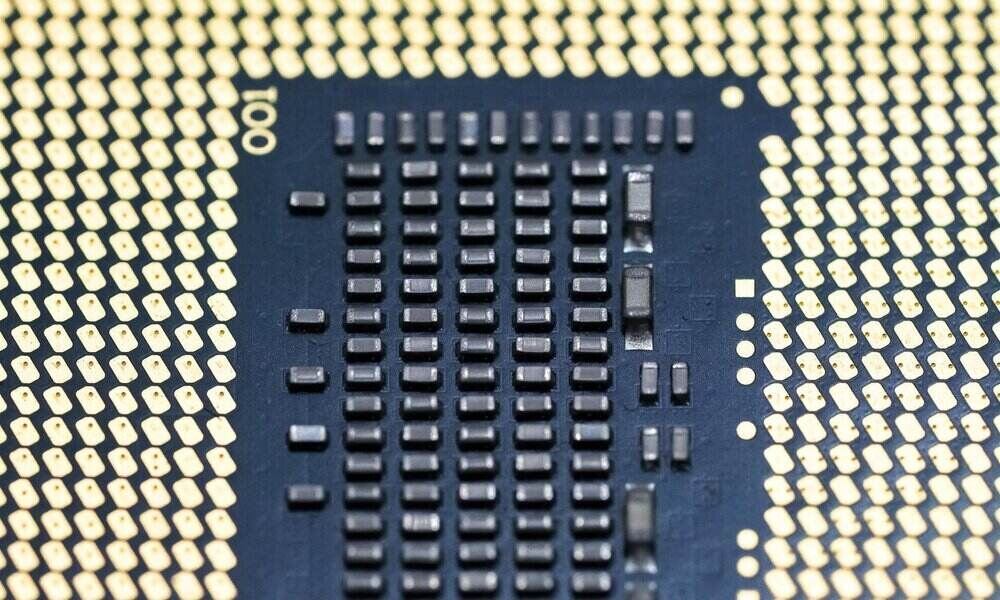
The consulting firm Deloitte considers that towards the second half of this year will start to see light at the end of the tunnel for the chip shortage crisis, even if only for some guys of semiconductors. At the same time, it also makes it clear, in the report that reflects this, dedicated to the semiconductor sector corresponding to 2022, that the chip sector is as essential to our world as food, energy or logistics, among others. others.
Despite its essential nature, the chip industry is not structured in a way that reflects this. In reality, as the report admits, it is dwarfed by the size of others, such as agriculture or oil and fuel, noting that “80% of the world’s food or fuel does not come from a handful of manufacturers concentrated in just a few countries«, something that does happen with chips.
With all this in mind, Deloitte has made several predictions for the chip industry in 2022, all of which boil down to one word: disruption. The first prediction is that your scarcity will continue. But it won’t be as dire as last year’s. According to the report, the consultancy expects that “the severity and duration of chip shortages, as well as their economic ramifications, be less pronounced by increased capacity as well as supply chain improvements made by manufacturers, distributors and end customers«.
Mind you, the semiconductor shortage is not expected to end immediately. Production is still ramping up at new facilities, with many not opening until 2023. At least not until past the first half of 2022 will some normalcy return, and only for some sectors. Those that have not improved by then will probably have to wait until 2023 for their problems to subside, and in fact Deloitte warns that it may not be until well into next year when some components with longer waiting times begin to flow normally. .
The second prediction for the sector is more the verification of a fact: there is a shortage of personnel in the semiconductor sector. As in many others, the sector has not been spared the effects of what is known as the Great Resignation. In fact, according to Deloitte, the effects it has had on the chip industry have been worse than others. For several reasons: manufacturers’ revenues will be almost 50% higher in 2022 than in 2019, and the recent growth of the chip sector in Taiwan and South Korea has exhausted the available talent in the area.
However, localized chip production will open up additional talent pools, but this will not happen anytime soon as professionals need to learn new skills. Also keep in mind that the skills needed in the semiconductor industry are changing, relying more and more on software-related skills. So it will take some time to recruit the right staff.
In short: the growth of the sector and the transformation that is already underway as a direct result of the shortage is facing another shortage: that of qualified personnel. With shortages everywhere, it can take longer than expected to fill positions essential to operations.
The third forecast is related to the start of production location. According to Deloitte, the total number of wafers globally will be 50% higher in 2023 than in 2023, and although many of them will be in traditional semiconductor strong points, such as Taiwan or South Korea, practically all will no longer be. . According to the report, there will be more and more factories in the United States, China, Japan, Singapore, Israel and Europe. The change will be difficult, but the shortage of chips has proven the need to manufacture chips closer to their destination.
The latest forecast indicates that chipmakers will accelerate digital transformation. Faced with their traditional rigidity and slowness to adapt and their unwillingness to change, companies in the sector have seen the need to strengthen and evolve to be more competitive. Of course, half of the chipmakers that have participated in the surveys that have served as the basis for the report have not yet modified their digital transformation strategy to adapt to the disruptions caused by COVID-19 and the shortage of chips.
Deloitte, however, points out that now is the time for chip industry leaders to address the problems of the last two years and use what they have learned to develop a new, clearly defined strategy to avoid the next chip shortage crisis.



